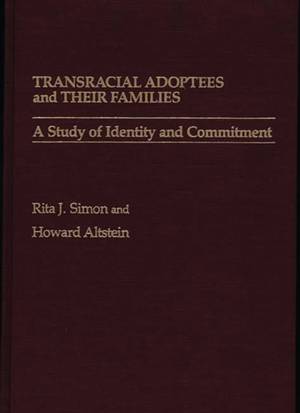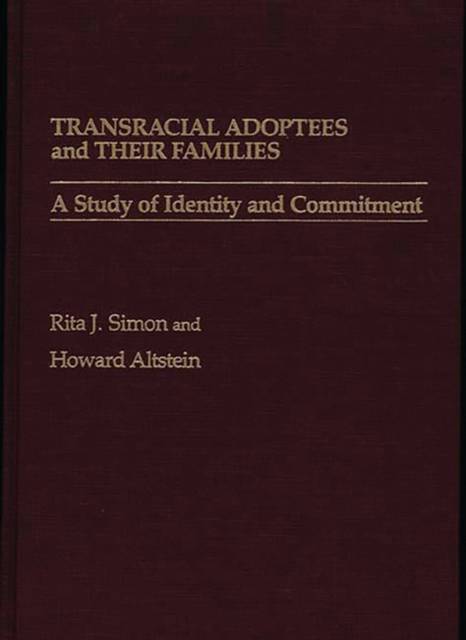
- Afhalen na 1 uur in een winkel met voorraad
- Gratis thuislevering in België vanaf € 30
- Ruim aanbod met 7 miljoen producten
- Afhalen na 1 uur in een winkel met voorraad
- Gratis thuislevering in België vanaf € 30
- Ruim aanbod met 7 miljoen producten
Transracial Adoptees and Their Families
A Study of Identity and Commitment
Rita James Simon, Howard AltsteinOmschrijving
Transracial adoption is a controversial area of research and practice in child welfare. The authors, a sociologist and a social worker, have contributed much to its understanding through a series of studies that began in 1972 of white families that have adopted nonwhite (mostly black) children. This book reports on the latest phase of their research, which was based on interviews with most of the families and adoptees in the original sample. The purpose of the interviews was to explore the adoptees' racial identities and self-esteem, and the long-term effects of transracial adoption on the adoptees and their families. The authors present their findings in a clear, vivid, and coherent manner; objectively examine the issues raised by the study; and thoughtfully formulate implications for policy and practice. The study supports their major conclusion that `where no appropriate permanent inracial placement can be found for a non-white child . . . transracial adoption should be seriously considered.' A timely, unique, and sophisticated work that should be read widely by students, practitioners, and policymakers in child welfare. Choice
Reporting on the third phase of a 14-year study of transracial adoption, this volume focuses on the adoption of non-white children by white families. It includes personal interviews with 96 mothers and fathers and 218 children which help to answer questions about the long-term effects of transracial adoption on the adoptees' mental and emotional health and their racial identities. These valuable empirical data are combined with discussions of the practices of adoption agencies, recent court rulings, and alternative forms of adoption.Specificaties
Betrokkenen
- Auteur(s):
- Uitgeverij:
Inhoud
- Aantal bladzijden:
- 163
- Taal:
- Engels
Eigenschappen
- Productcode (EAN):
- 9780275923983
- Verschijningsdatum:
- 19/01/1987
- Uitvoering:
- Hardcover
- Formaat:
- Genaaid
- Afmetingen:
- 155 mm x 241 mm
- Gewicht:
- 453 g

Alleen bij Standaard Boekhandel
Beoordelingen
We publiceren alleen reviews die voldoen aan de voorwaarden voor reviews. Bekijk onze voorwaarden voor reviews.











